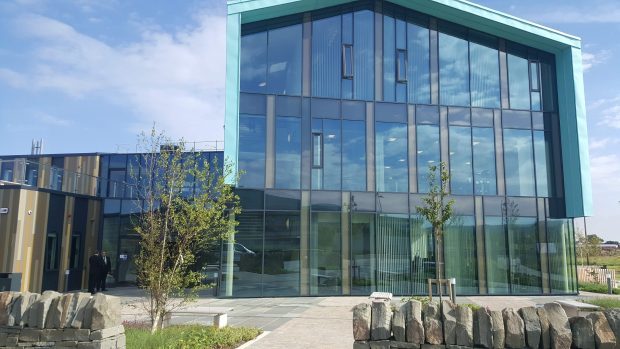First Minister Nicola Sturgeon has insisted Highlands and Islands Enterprise (HIE) will “continue to carry out” its functions – despite talk of a proposed merger.
It has emerged that the agency, which recently moved into a new £1million Inverness headquarters, could merge with Scottish Enterprise as a cost cutting measure.
Opposition politicians have branded the reports “incredible” – but Ms Sturgeon yesterday appeared to throw cold water on the plans.
Speaking at First Minister’s Questions, she said: “HIE has done a fantastic job over the last fifty years.
“I can give the assurance that we will make sure it is in a position to continue to carry out those functions and provide the excellent services it does to the Highlands of Scotland.”
Ms Sturgeon was responding to John Finnie MSP, who said her comments showed she had “quashed” plans for a possible merger.
Speaking after the session, Mr Finnie added: “The Highlands and Islands faces unique challenges and opportunities, and needs its own development agency.
“More than that, it needs one with the big-picture outlook that is built in to HIE – supporting development of and for the whole community, not commerce alone.
“The first minister recognises the hugely valuable role that HIE has played in the north of Scotland over the past 50 years, so I hope she will see the strong case for bringing that success to the south of Scotland too.”
The Press and Journal revealed on Wednesday that north economist Tony Mackay said that he had been told by an unnamed SNP minister last week that an ongoing review could lead to HIE being merged with Scottish Enterprise.
HIE celebrated its 50th anniversary last year, with its forerunner the Highlands and Islands Development Board having been established in 1965 in an attempt to tackle the region’s high unemployment and dwindling population.
The agency, which has just moved into new £13million headquarters at Inverness Campus, supports more than 600 businesses across the north and claims to have played a part in growing the population by more than 20% since its creation, while re-balancing the local economy.
